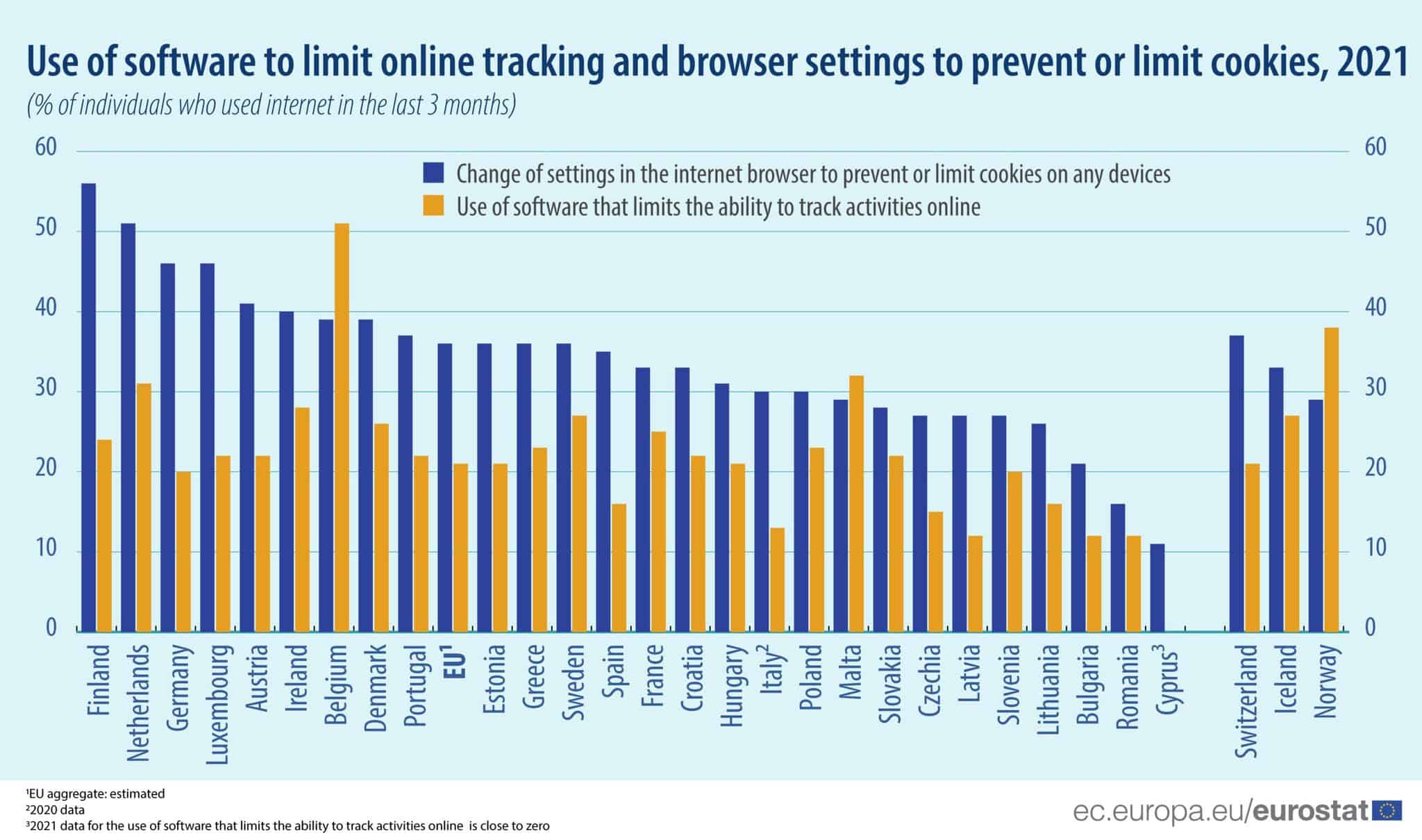On the occasion of Safer Internet Day which was celebrated on 8 February, the European Statistical Agency Eurostat released survey data concerning the safe and more responsible use of online technology and mobile phones, in particular with concern to privacy and the (mis)use of cookies.
In 2021, 80% of people in the EU aged 16 to 74 who used the internet in the last three months prior to the survey knew that cookies can be used to trace people's online activities. Awareness was higher (86%) among younger users (aged 16 to 24) and lower (74%) among older users (aged 55 to 74).

Although most people seem to be aware of this situation, only slightly above one third (36%) of users aged 16 to 74 reported that they had changed their internet browser settings to prevent or limit cookie use.
Additionally, only 21% use software that limits the ability to track their activities on the internet (in the 3 months prior to the survey), a 1-percentage point increase compared with 2020.
When it comes to changing the internet browser settings to prevent or limit cookies, the highest proportion of internet users, as compared with the EU average, was found in Finland (56%), the Netherlands (51%), followed by Germany and Luxembourg (both 46%). By contrast, a considerably smaller proportion of the internet users had taken such action in Cyprus (11%), Romania (16%) and Bulgaria (21%).
Among the EU Member States, internet users in Belgium were more serious about online tracking, with 51% using software to limit the ability to track activities online. They were followed by users in Malta (32%), the Netherlands (31%), Ireland (28%) and Sweden (27%). By contrast, the lowest shares of users that use this kind of software were in Bulgaria, Romania and Latvia (all 12%).

